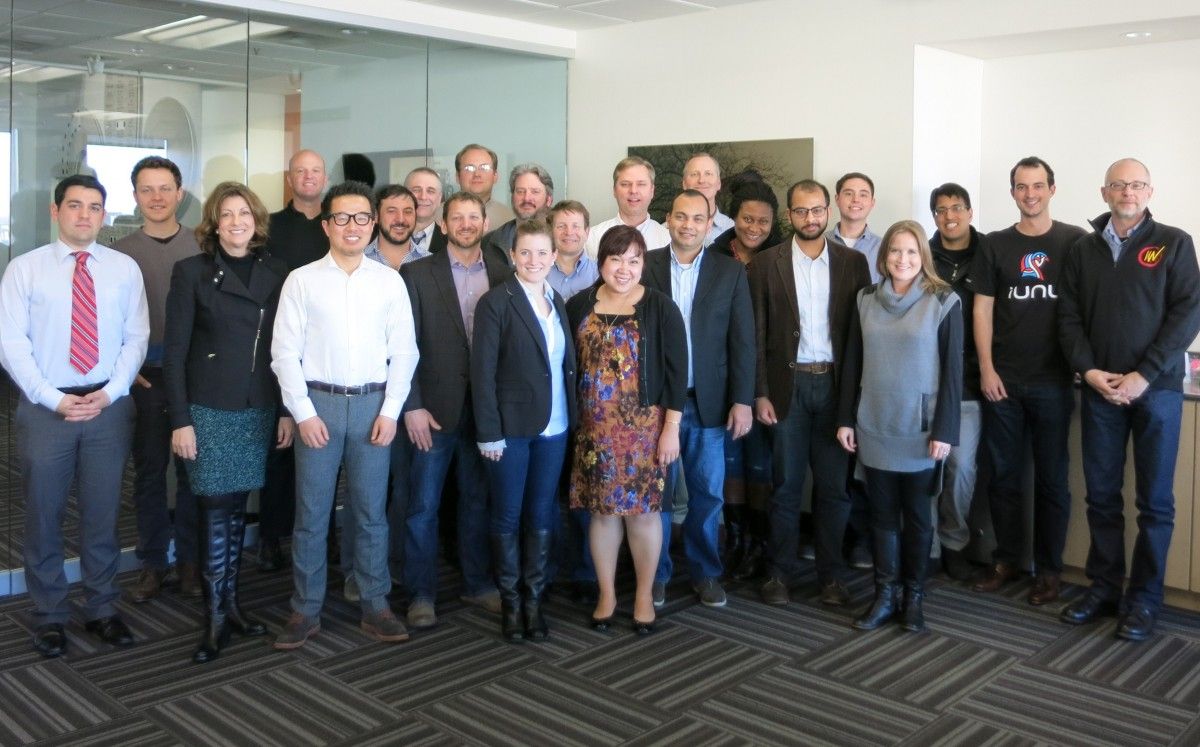Village Capital just wrapped up demo day for Batch 2 of their Agtech accelerator program (Ag Global Program), and have announced the the peer-selected recipients for $100,000 in funding. Village Capital’s funding model is unique in that at the end of the program, the participating companies select which two companies amongst their peers will receive $50,000 each in funding from Village Capital’s investment fund.
Village Capital hosted demo day in Louisville Kentucky. The event attracted over over 60 investors and industry leaders from across the country. “This was the first Village Capital event that I’ve attended’, said Gabriel Wilmoth from Syngenta Ventures, “Ross and his team did a great job organizing, and as an investor, I was impressed with the overall quality of the pitches.”
Nine companies were selected for Batch 2 of the Ag Global Program, with each giving a 3-minute pitch on demo day to a panel of industry experts who are there to ask smart questions. The program ran for three months with companies flying out to Louiseville three times to meet for a four day accelerator workshop. The curriculum included helping the companies build their sales pipeline and value propositions and introductions to mentors and customers.
This year’s winners for the two $50,000 prizes were FIn Gourmet, which makes healthy ready-to-eat foods using Kentucky wild-caught Asian Carp and locally sourced fresh ingredients; and iUNU Lights, which designs energy efficient plasma lights and management solutions to make indoor farming profitable and environmentally friendly.
Last year’s accelerator program combined both agtech and cleantech companies, and this was the first year that agtech had its own track. Last year’s agtech winner was Spensa Technologies, which monitors insect pest management, vineyards and tree crops. Shortly after the program, Spensa snagged a $1.3 million seed round followed by another $630k in grant funding. Spensa has three products, OpenScout, an app that helps growers and advisors digitally record their field scouting; MyTraps, software that tracks insect populations to better control crop damage caused by pests and reduce the amount of insecticides released into the environment; and Z-Trap, an insect trapping device that automatically counts the number of targeted insects and sends the data remotely to a mobile phone or computer.
Village Capital has been running their accelerator programs for nearly five years, with a focus on advancing early stage companies that can have an impact. Today, Village Capital has 42 companies in their portfolio and these companies have gone on to raise over $100 million in subsequent funding.
Village Capital will be hosting another pitch event Batch 2 at UC Davis on February 20-21. To register or learn more about the events visit:
February 20: Board Meeting Session
February 21: Venture Forum (Pitch day)
The companies participating in the program were:
Agribotix
Makes actionable intelligence for agriculture using drones. Apitronics Software/hardware platform empowers growers to gather real-time in-the-field data and makes it accessible anywhere.
Apitronics
Software/hardware platform empowers growers to gather real-time in-the-field data and makes it accessible anywhere.
Iron Goat
Creates pelletized agricultural products directly from standing crops with no fossil fuel.
FIn Gourmet
Makes healthy ready-to-eat foods using Kentucky wild-caught Asian Carp and locally sourced fresh ingredients.
Growcentia
Developing Microbial Biostimulants that enhance plant growth in the face of increasing abiotic stress.
iUNU
Designs energy efficient plasma lights and management solutions to make indoor farming profitable and environment friendly.
reNature
Bioreactor technology processes food waste into fertilizer.
TekWear
Apps and software designed for wearable devices targeted for agriculture uses.
Wildsense
Provides product for wireless underground soil moisture sensors and soil moisture information for irrigation management
Have news or tips? Email [email protected]





